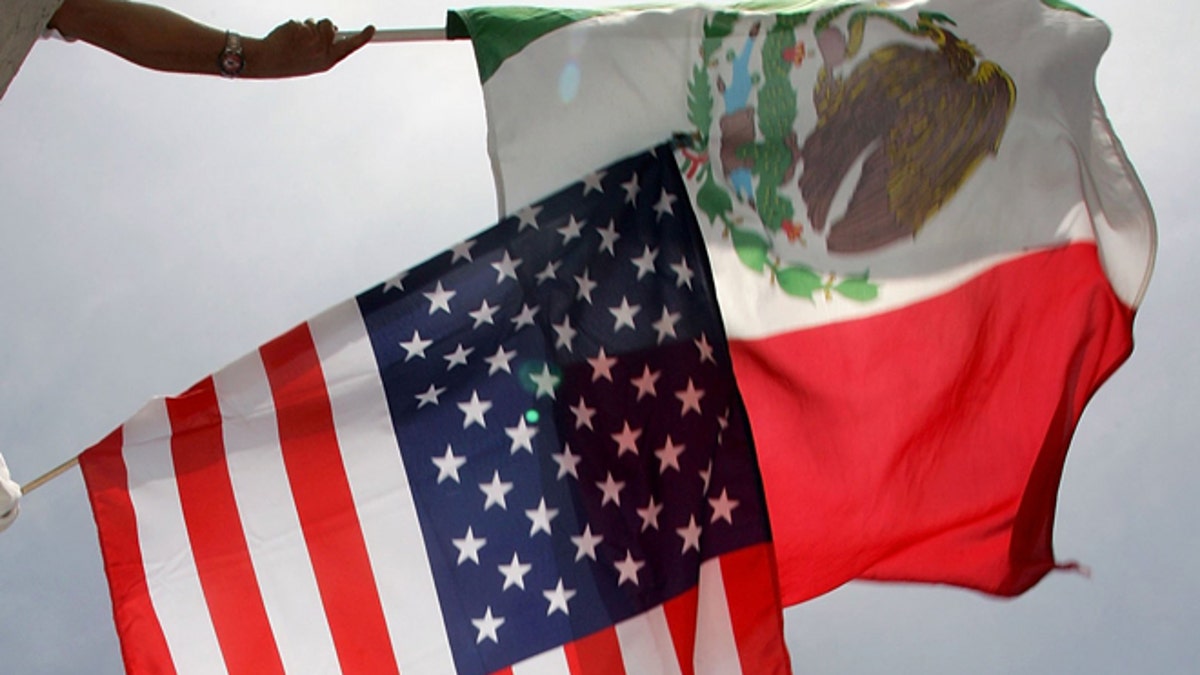
(Photo by David McNew/Getty Images) (2006 Getty Images)
“Nearshore” outsourcing is the practice of getting services performed by people in neighboring countries. Many companies in the United States, for example, outsource work to Mexico. Geographic proximity means that logistics and communications are easier and less expensive.
Although the offshoring concept became a popular business practice, escalating uncertainties of regional threats in India combined with increased focus on vulnerability management and demand to keep data close to where businesses are actually located have changed delivery preferences of U.S. businesses towards nearshore options in Mexico.
Mexico has a lot of appeal because of its proximity to American demand and the continuing need of many companies to improve their working-capital positions, which means that new jobs are being created on both sides of the border—and enhancing U.S.-Mexico relations.
“Mexico has made important advances,” said Javier Allard, AMITI president. “We don’t want to compete with India, China or the Philippines. Many companies from both sides of the U.S.-Mexico border are making big gains.”
AtelUSA, a Mexico-based company that provides call center outsourcing services for U.S. companies, is one of the companies that is seeing gains, as demand for nearshore outsourcing from U.S. companies grows. They handle outbound sales calls for major telecommunications companies, manage inbound customer service calls for large banks, and oversee the integration of both inbound and outbound calls for top credit card companies.
“Mexico’s contact center industry remains one of the largest and most robust in Latin America,” said Ricardo Navarrete, Director of Business Development for AtelUSA. “Mexico represents an excellent nearshore alternative for U.S. companies that are looking for diversification or that do not want to use an offshore vendor.”
Mexican call center nearshoring will undergo substantial growth through 2012. This is because Mexico has emerged as the most attractive location from which to serve the U.S. Hispanic population. With an abundance of Spanish-speaking agents, it is also a competitive alternative to other Latin America nearshore destinations from which to serve U.S. Spanish-speakers. As a result, U.S. companies with a substantial amount of bilingual call needs are looking for a lower-cost, nearshore destination.
Mexico is insulated from the economic volatility experienced by most Latin American economies, which has seen a steady improvement in main economic indicators over the last several years. Inflation and interest rates are low, compared to those of Argentina and Brazil.
Companies are increasingly looking to outsource more of their non-core functions to reduce cost and they continue to prefer lower cost offshore solutions. Increasingly, they are looking for a second offshore geography, particularly Latin America, so as not to put all their eggs in the Asian basket.
Foreign direct investment in Mexico rose 27% in the first half of 2011 from a year earlier to $12 billion, boosted in part by the rebounding U.S. demand for manufactured goods.
“There is a very large, educated, young population in Mexico," says Ricardo Navarrete.
Technology is a popular subject with university students. Mexico has approximately 400,000 students studying technology related subjects in universities and technical schools with roughly 60,000 graduating annually.
The region is considered the main nearshoring destination for U.S. and the best viable alternative to offshoring to India. Recent ranking of the "Nearshore Americas Power 50" named the most influential nearshore figures from 16 countries from Americas region. The $10 billion industry has chances to successfully compete with offshore destinations as certainties of hazardous world have fully overrun into outsourcing decisions.
For U.S. companies, nearshoring business services to Mexico transcends borders and eases the flow of commerce--enhancing U.S.-Mexico relations.
Richie and Lucia Matthews are co-directors of DIÁLOGO, a public relations firm with offices in New York, San Diego and Mexico City. Lucia may be contacted at lucia@dialogo.us.
